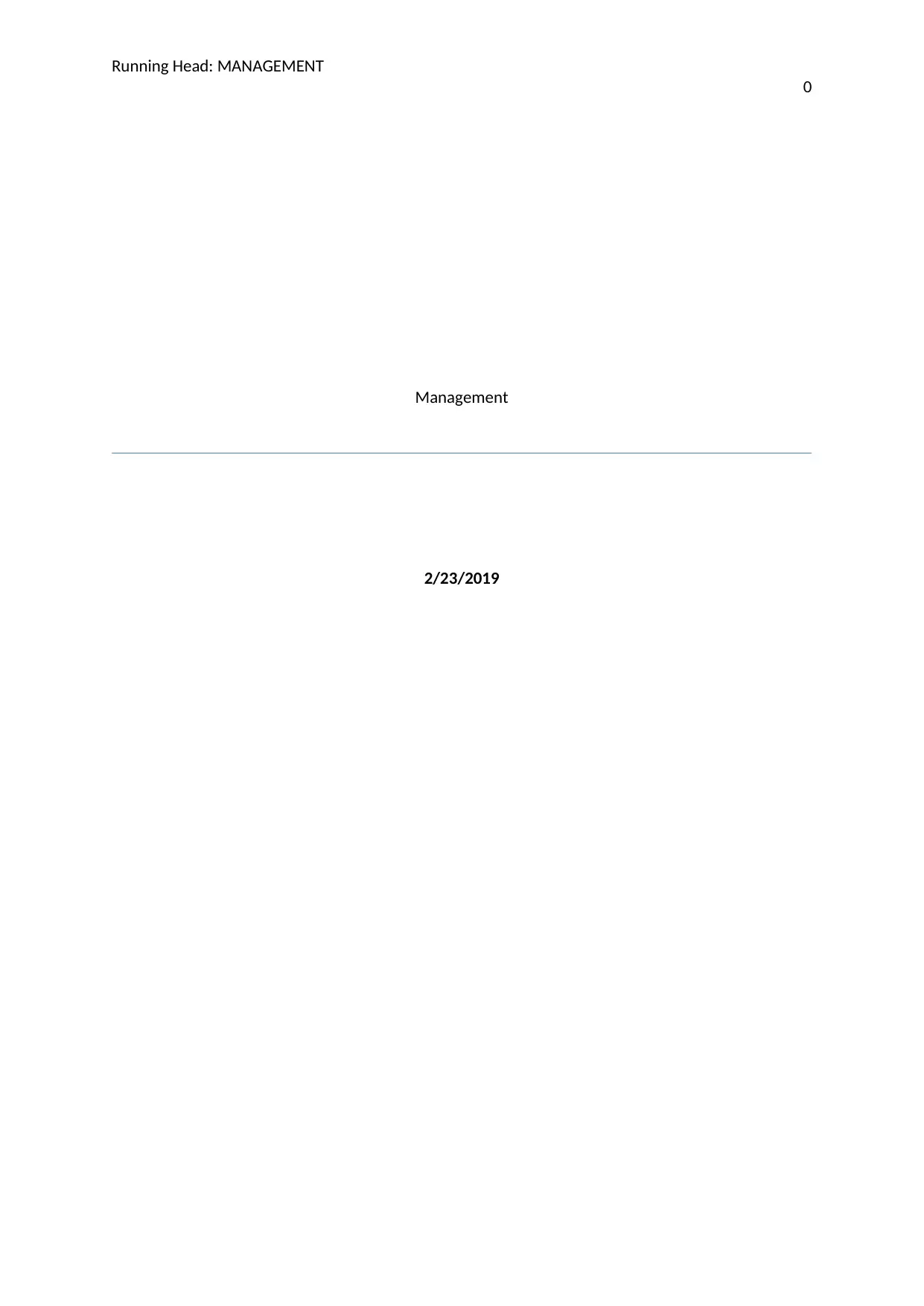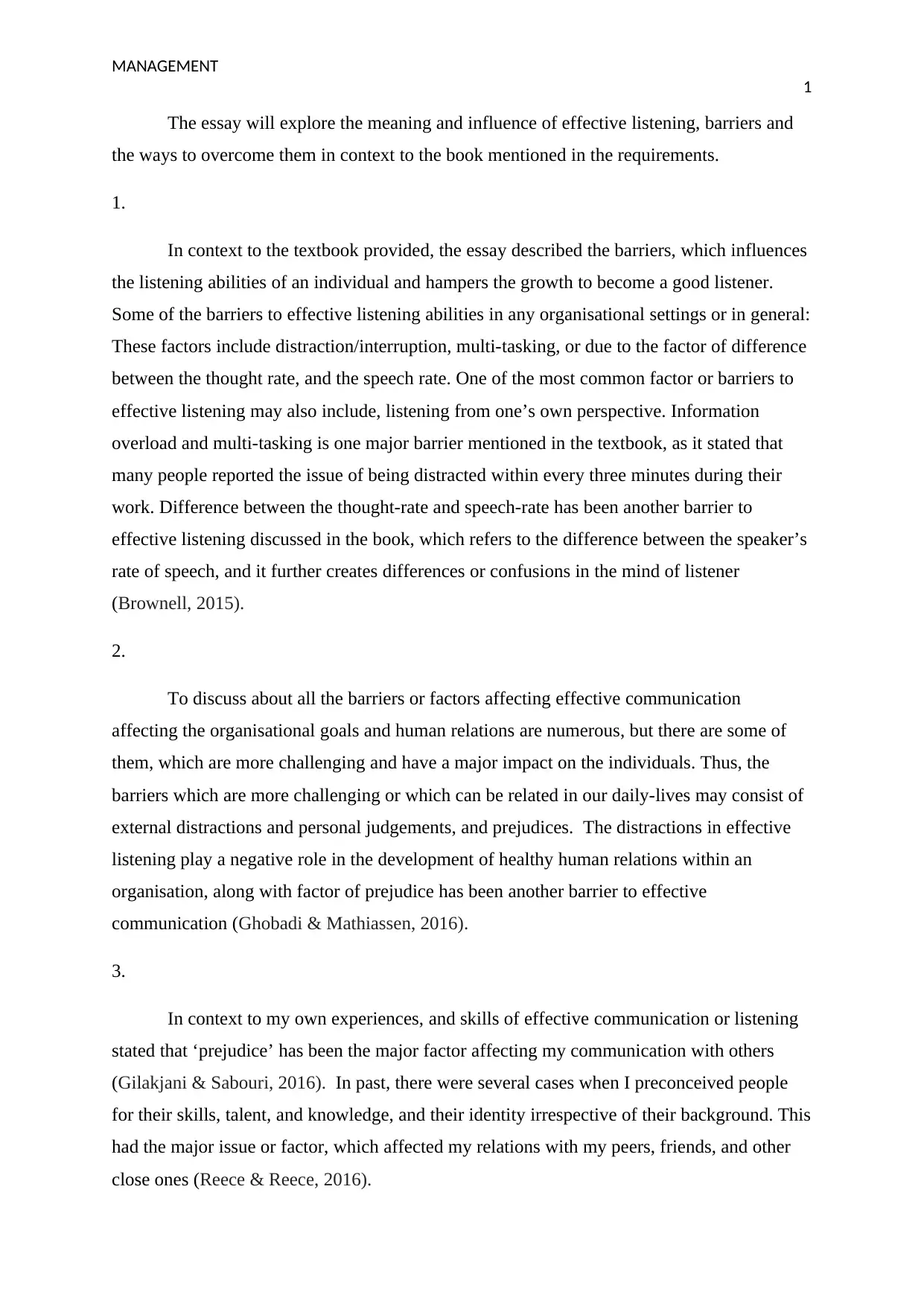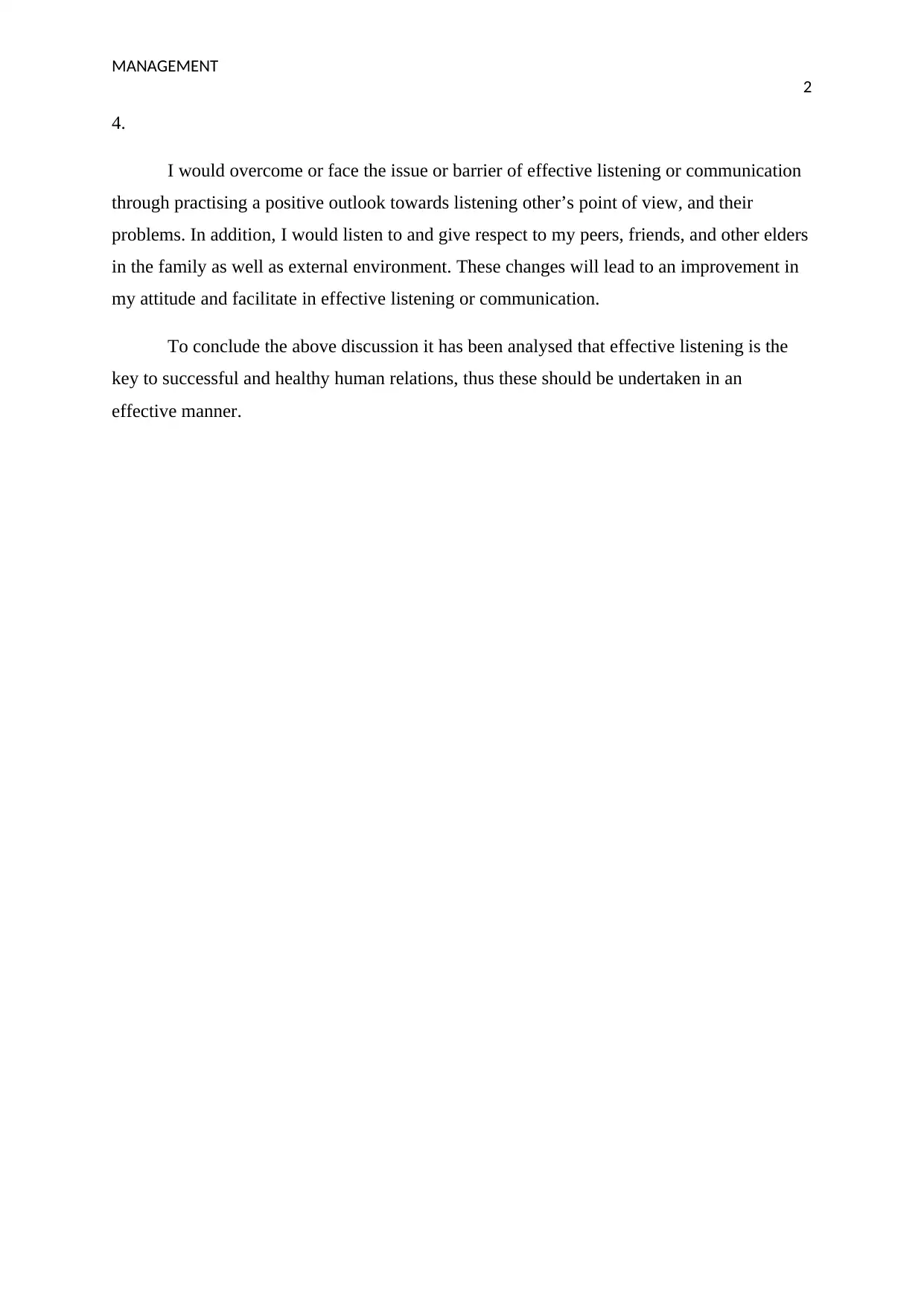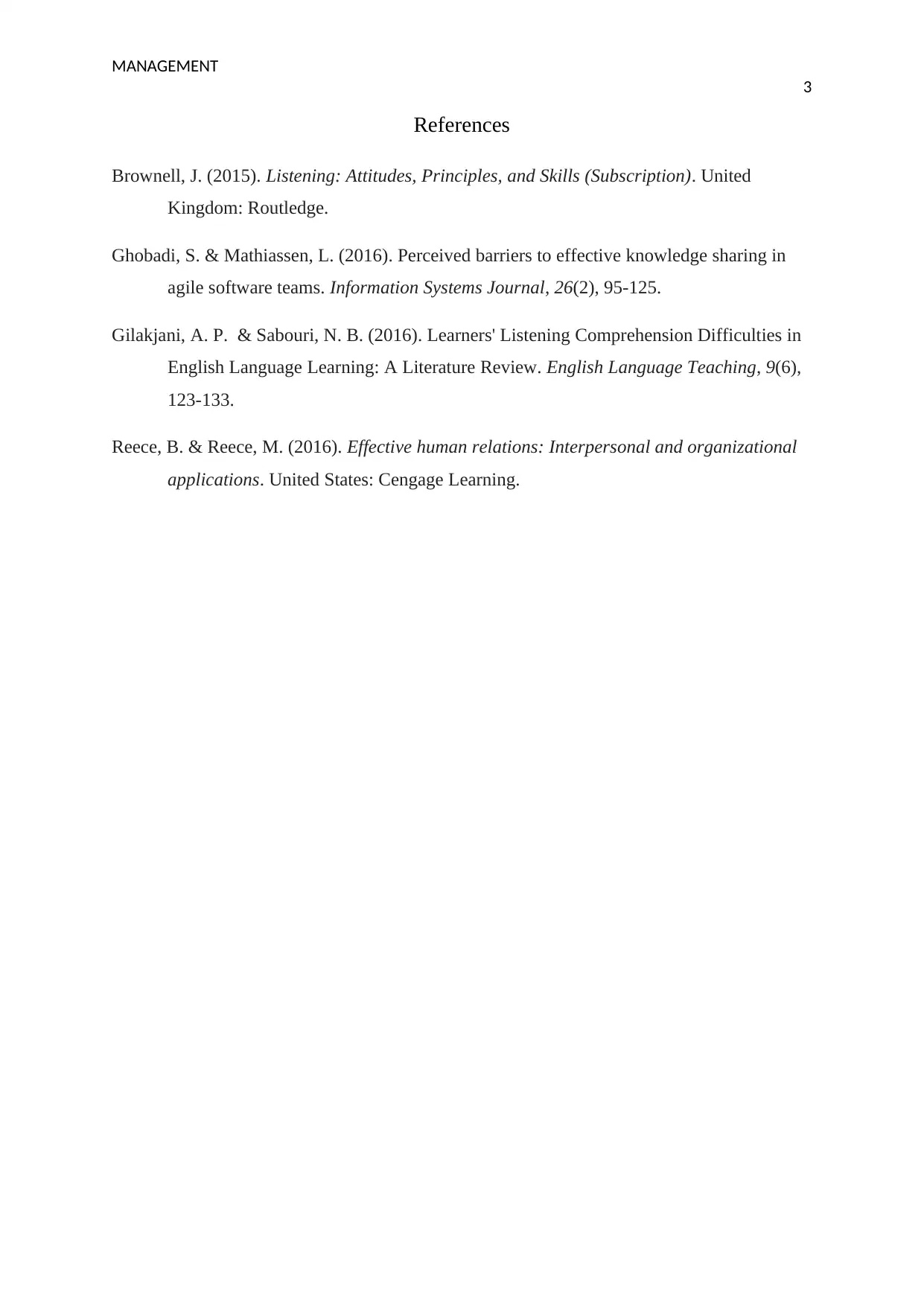Essay on Effective Listening Barriers in Management
VerifiedAdded on 2023/04/21
|4
|666
|447
Essay
AI Summary
This essay examines the concept of effective listening and the various barriers that can hinder it, as discussed in a provided textbook. The essay identifies distractions, multi-tasking, the difference between thought and speech rates, and listening from one's own perspective as key barriers. It highlights external distractions and personal prejudices as significant challenges in communication. Drawing on personal experiences, the essay identifies prejudice as a major barrier to effective communication, providing examples of how preconceived notions affected interactions. The author proposes strategies to overcome these barriers, such as practicing a positive outlook and showing respect to others' viewpoints. The essay concludes by emphasizing the importance of effective listening for successful and healthy human relations.
1 out of 4







![[object Object]](/_next/static/media/star-bottom.7253800d.svg)